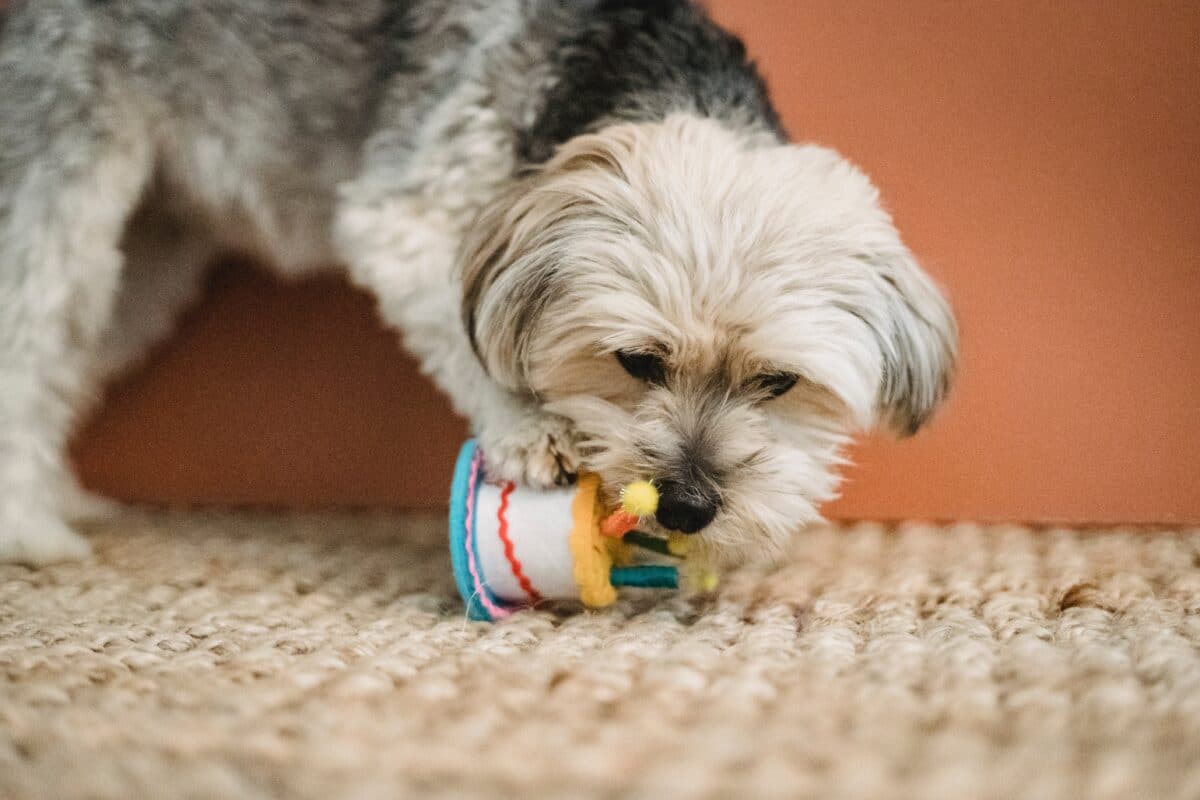No products in the cart.
It’s a common question we hear every day: “I’m trying to keep my dog healthy, but he seems to be getting fatter and fatter. What should I do?” Dog obesity is rising, and it can be difficult to know why. Many of us have a love-hate relationship with the idea of giving our canine friends junk food as people become more health conscious about how much they eat and drink.
But the truth is, your pooch probably suffers from some version of this condition. In fact, research shows that around one-third of dogs are overweight or obese — and it all has a lot to do with how much you feed them.
The Importance of Healthy Dogs and How Much Food Should You Give Them?
Studies have shown that a healthy dog requires between two and three times the amount of food that a dog with a condition such as Anorexia Nervosa, diabetes, or liver disease requires. Excessive amounts of food can lead to health problems for your canine friend, but for many dogs, it’s a natural part of growing up.
When you’re young, you encourage your pup to take in as much as they can because you don’t know what will happen in the future. As your dog grows older, it may require more food to maintain weight. Unfortunately, while it’s important to provide your dog with the right amount of food, it’s just as important to provide them with the right type of food.
Benefits of a Healthier Dog
When it comes to the benefits of a healthier dog, there are many. Here are just a few:
Improved quality of life for your pet: Because your dog is getting fitter and healthier, they’ll feel better too. They’ll be more alert, have more energy, and be able to stay outdoors longer with less stress.
Stronger: Fitter dogs are stronger, and they can produce more offspring. That means more competition for food, making your dog work harder for dinner.
Happier: Pups that are healthier and happier tend to have less stress and anxiety. This can improve their immune system and help them stay healthy and strong.
Healthier skin and eyes: Skin and eyes may become dull and dry with age for dogs, so keeping your pup’s skin and eyes moisturized is important.
What Causes Dog Obesity?
When it comes to the causes of canine obesity, there are many factors. Here are just a few:
Incorrect diet: Some dogs may be underweight because they’re not getting the right amount of protein in their diet, or they may be getting the wrong type of food.
Excessive activity: Are you spending too much time outside, or do you two spend too much time together? If so, your dog may be over-exercising.
Inappropriate play: Are you two spending too much time playing dog games, like tug-of-war or fetch? If so, your pup may be doing too much play.
How to Get Rid of the Fattest Kittens?
You can do a few things to help prevent fattening up your feline friends. Spend time with them: Give your kitty time to socialize, play with them, and let them run around in their kennel or indoor home.
Limit the amount of time you’re working: If you’re spending a lot of time at the office, on the computer, or out with friends, try to put your cat’s needs first. They’re probably fine without you.
Limit your dog’s activities: Taking them on too many walks, doing all their activities with them, or having them run around with other dogs is a big no-no. The more they run around with other dogs, the more they’ll be involved in the play.
The Dos and Don’ts of Feeding Your Dog Junk
When it comes to the dos and don’ts of feeding your dog junk, there are many things to think about.
Feeding a dog junk food is like putting your health at risk. You could become infected with parasites, worms, or other illnesses that could harm your dog. And lastly, adding more calories to your dog’s diet could eventually add extra pounds to your own body.
So what’s the good of adding calories to your dog but not yours? Luckily, there are a few benefits to adding more calories to one’s diet but fewer to a dog’s diet.
First, your dog gets more nutrition from eating the calories from your diet than if you were to exclusively feed them dog food.
Second, even though your dog is getting more calories from eating your food, they’re not getting as many nutrients as they would if they were eating healthy.
The Bottom Line
If you’re wondering how much food your dog should be getting or what kind of food is best for them, the answer is that it’s up to you to decide. You can decide what foods you feed your dog, how much you feed them, and what those foods are. When you make this decision with care, you can feel good about your choices for your dogs and your health.


